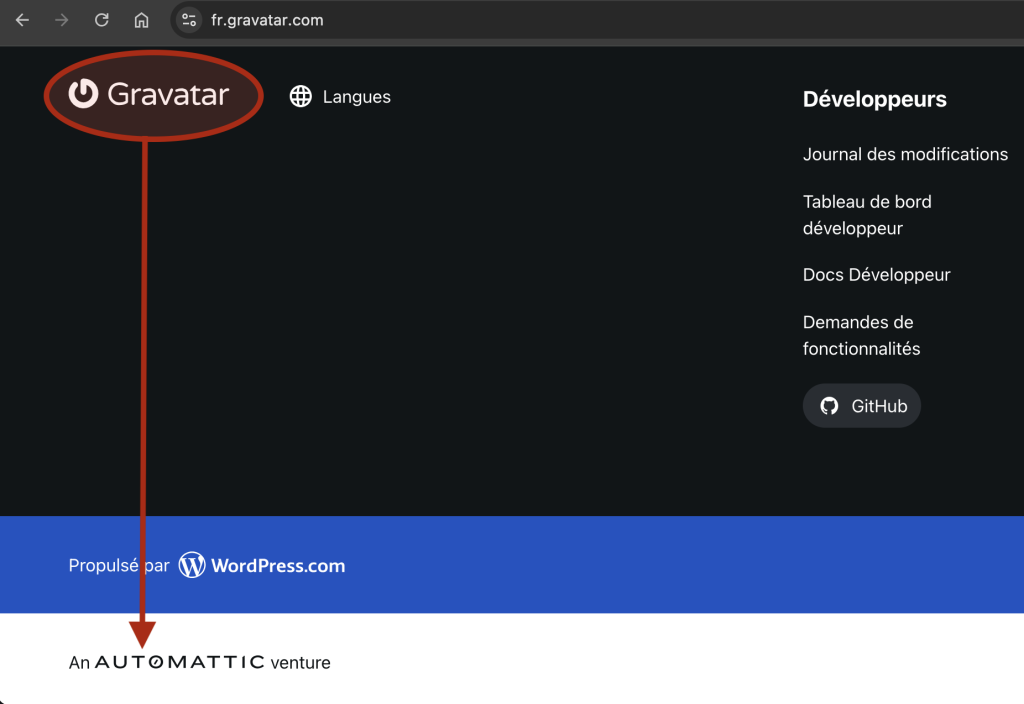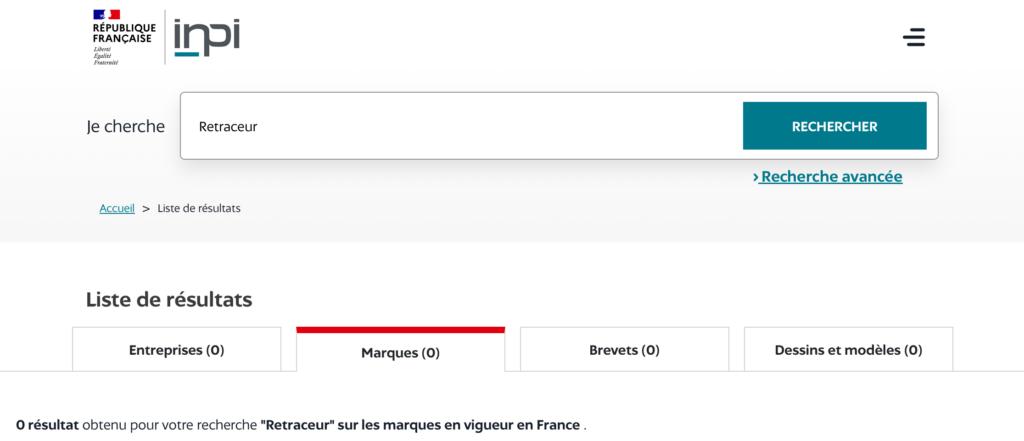On November 5, 2024, I freed myself from a Web that Mr. Mullenweg had been meticulously weaving since May 27, 2003.
While the Web this Texan architected may look attractive to us at first glance, and for many long years (I remained attached to it for over 14 years), the « democratizing publishing » promise and the fact WordPress source code is open are masking its primary goal: the satisfaction of the cowboy‘s personal interests.
By centralizing powers and resources, Matt, the supreme sheriff of the GPL spiced with trademark regulation, who is at the same time the software co-founder, the foundation director, the commercial mothership CEO, the network of contribution sites’ owner, the last 17 open source project major versions leader, made the software highly dependent on his infrastructure and his goodwill.
Since the beginning of 2025, having witnessed the « democratizing web publishing » open-source project community’s captivity to the WordPress trademark, thus placing itself & in spite of itself, at the mercy of the Houston-born despot, I decided to react and retrace a path fully freed from Mr. Mullenweg‘s influence by forking the software. Before announcing the first stable version of my work, this transitional post’s goal is to explain why, despite my attachment and gratitude to this community, I have carried out this independent revolution.
The software, the communauty, WordPress.org, the foundation, Automattic, WordPress.com, what do we contribute to when we get involved in WordPress?
The latest authority crisis of the open source self-proclaimed avenger has allowed me to better understand what WordPress really is compared to what I believed it was, like probably many others.
Unfortunately, WordPress is not community’s property nor its contributors’ one: it’s not a common good or a community asset. Its real mission is very far from democratizing online publishing and the defended interest is not general or common.
Indeed, if the online, commercial and media harassment the Texan made on one of the Web hosting market players was detestable until its interruption by a court decision, its consequences have already unmasked the virtuous promises detailed (I naively believed for more than a decade) on this page of the WordPress foundation Website.
We’ve contributed to make WordPress a trusted trademark
WordPress is a trademark the WordPress Foundation owns. Its exclusive commercial exploitation has been entrusted to Automattic. It’s therefore under Mr. Mullenweg’s « lifetime » control, who is both the Foundation director and the Automattic CEO (here’s one of his many conflicts of interest). Instead of clearly establishing his company owns the trademark, this deception allows him to make us believe this trademark serves a general interest.
We hope to gather broad community support to make sure we can continue to serve the public good through freely accessible software.
La fondation WordPress
The phrasing is cunning: « continue to serve the public good » can be understood as « now and forever » or more likely as « forever, but once Matt decides it’s so ». After more than 20 years of a « benevolent » dictatorship, it has become clear that we will have to wait until the undisputed WordPress galaxy emperor has fully benefited of his empire before the trademark can serve another & more general interest or can fall into the public domain.
What is the WordPress community for?
In Matt’s shoes, it’s first and foremost his way of « viralizing » the WordPress trademark via « middleman » businesses (hosts, development agencies, communication agencies, specialized freelances, etc., or simple hobbyists) which spread his good words to prospects looking for online publishing solutions. Rather than investing in impersonal advertising, bringing together these « middleman » businesses and prospects, locally or online, while guiding the logistics, behaviors and taking in charge these local meetings funding, strengthens attendees’ attention make them feel they belong to a group whose mission goes beyond personal enrichment to satisfy common higher needs. Let’s not forget the essential: it’s just a marketing tool quite similar to the good old Tupperware sales method.
Besides, this approach worked great: more or less of 40% of the Web is using the software! That’s probably due to the fact that the « middleman » businesses, I was talking about, have also been able to benefit from the system that some are even calling an « ecosystem ». I have always had trouble with this term when used to describes the WordPress economical system which for me, who graduated a high school diploma about Life and Earth Sciences, has less to do with a market than with the living and its environment. Some of these « middleman » businesses even founded their business using a hard dependency to the software, thus linking their future to the WordPress trademark’s one and therefore to Matt’s one.
For hobbyists like me, I believe the community openness and most of its members willingness to share their knowledge to let others grow are the reasons we were loyally contributing. In addition, I believe, like many other members and former members, that the community shares much more virtuous values than the ones its capricious leader is interested in. I, as a civil servant in my professional life, was finding myself into these values. Dignity, impartiality, integrity and above all probity are non-negotiable values that accept no compromises nor tolerance towards those who trample on them.
I think I need to clarify at this stage (to avoid any misinterpretation of my findings) that all the « middleman » business representatives I have met, beyond earning their living out of the WordPress market, are sincerely sharing the community values and have always shown to have an irreproachable ethics. My best friends are admirable freelances and are very embarrassed by the cowboy‘s deviance. I know it’s a lot more easier for me to start a revolution since my everyday job has nothing to do with WordPress and I used to only play in the hobbyist league on this field.
My guess: is Matt, strong in his success, believes that he no longer needs to spare this community and its values. Finally, the community delays, objects, and challenges the open source project’s governance that he co-founded with Mike Little (by the way, I wonder how he feels about Matt’s leadership…). Community is rightly contesting it: it is not represented in the decision-making since all project’s governance is entrusted to Automattic people. Even if an independent contributors minority have played, and for some are still playing, a huge role in maintaining the project’s source code, the majority of contributions are were made by the commercial mothership’s staff. It’s always easier to be surrounded by followers when you do not accept the richness of contradiction.
The « WordPress » term therefore stands for the success of a single individual who knew how to manipulate others. It’s not easy to admit, but it’s necessary to acknowledge it in order to move forward: I was fooled, I was not vigilant or clear-sighted enough.
So, in my opinion, trying to make WordPress, Mr. Mullenweg‘s work, a common good or a more equitable one or thinking about marginalizing its owner’s influence are 2 illusions. A definitive break-out with the WordPress trademark and an independent approach truly sharing resources and responsibilities are the 2 starting points for a new & more virtuous path.
The leader must be the first to comply to the code of conduct and to show exemplary ethics.
Yet, we all witnessed Mr. Mullenweg‘s lack of exemplary behavior (e.g. this breach of the code of conduct) and especially his indifference (which is not new) to our aspiration to contribute to an open source project that embraces the highest ethical standards. That is to say, those that are applying to any responsible organization with a mission to satisfy the public interest.
Matt is above all that! Code of conduct and ethics do not concern him and all means are good to protect his commercial territory and his trademark. His communication on behalf of the community of contributors to the project via his WordPress.org website (the community contributions site, the hub to share resources and the tool powering automatic updates of all software installations) cannot be proof-read by some more reasonable community members. Mr. Mullenweg has all rights and no duties!
After all, these are not WordPress Foundation assets and since he´s the exclusive owner of the place (a fact I was unaware of until mid-October), he doesn’t care that community members have spent hours translating the software, documenting it, replying to support issues, etc.: it’s his place, everything belongs to him. And if one of the members objects, he either gets a harassment session, or a ban, or for the unluckiest, both.

For months he has been demonstrating the power of his grip on the Web he has meticulously woven for over 20 years. Thanks to the famous site that all WordPress installations are chained to, we were able to read that :
- he can regain control of a third party developed plugin without his author’s consent, at any time ;
- he can cut off automatic software, plugin, theme, or translation updates to the users of his choice, for example the Automattic competitor’s customers, at any time ;
- he can take advantage of the situation he put these customers into to attract them with discounts to get them back on the right track ;
- he can order one of his employees to make available for free a premium plugin primarly developed and sold by a third party company, at any time ;
- he can exclude influential, respectful, and constructive voices driven by a desire to satisfy community needs, and who are proposing to clean up a governance eaten away by multiple conflicts of interest, when he feels like it ;
- he can even complain that his actions could be punished by the wicked American justice system.
In short, he can do everything he would reproach to others, because it’s in his interest and it’s his privilege as the WordPress co-founder.
In reality, these regrettable banderillas have mainly demonstrated a lack of respect for the software contributors and the values of open source as well as a lack of professionalism from Matt and WordPress governance.
They also seem to show, given that the harassed host did not respond favorably to what I would call an act of active corruption, that these other hosts have probably been more conciliatory towards Matt‘s practice.
The deafening silence of professional customers regarding the dubious compliance of WordPress’ owner practices considering regulations on corruption, influence peddling and the duty of care.
I’m amazed that clients such as the White House (well not really now Trump was reelected), the New York Times, Microsoft, Meta, Adobe or large French companies such as Cap Gemini continue to use the software without flinching or requesting Mr. Mullenweg, the sole decision-maker of the « WordPress provider », the needed compliance measures about the WordPress project internal control. If I were in these companies communication departments’ shoes, I would at the very least ask my company name to be removed from this use cases list and I would start actively working on a plan B. Because, by « buying » WordPress, they are showing their solidarity with Matt’s behavior and I am not sure it’s good for their reputation…
It’s really too bad because these customers are the only ones who can influence the Texan to make him understand he needs to do what’s needed so that the necessary due diligences regarding corruption, influence peddling and duty of care are implemented by the project’s governance. Furthermore, these important customers should show their support for the community initiatives aiming to clean up the despot‘s dubious practices :
- by making a donation to the « WP Community Collective »,
- or by signing the open letter from « WP must win ».
I strongly advise French companies to start updating their risk management systems about these non-compliance risks by assimilating the software they use to any supplier with whom they may start or maintain a business relationship. In such a case: providers must then commit about their compliance with these laws (code of conduct, duty of care plan, risk mapping, controls, enforcement measures, alert system, etc.).
If the software source code is open source and can be used for free, I hope that these companies are well aware that by connecting it as is to the Internet, they are also customers of all the additional WordPress.org services (which is, I remind you, services coming from Mr. Mullenweg‘s personal Website!!!) as well as at least one Automattic service. I’m thinking about services like :
- software, its extensions and themes automatic updates (
api.wordpress.org), - translation work (
translate.wordpress.org), - software, extensions and themes translations automatic updates (
api.wordpress.org), - the emoji backwards compatibility mechanism (
api.w.org), - all blocks and block themes schema files (
schemas.wp.org), - REST API action URIs (
api.w.org) which are used to control the users ability to perform some block editor tasks, - documentation work referenced in the software source code or in the software GUI (
developer.wordpress.organdwordpress.org/documentation/), - or profile images, also called « Globally Recognized Avatar » (gravatar).

Dear companies, if you manage to obtain writings from Matt‘s dictatorship, do not take them for granted because he excels in doublespeak and regularly victimizes himself. Join together to concretely co-finance a control or audit of the practices possibly described.
Retrace to set us free
To retrace is literally to trace again and it‘s also, figuratively, to talk about or renew the memory of past things.
When I decided to create a fork of the WordPress source code (which is also a fork of the b2 blogging software created by Michel Valdrighi, a compatriot 🇫🇷), I wondered how should I name it. I found out the two meanings of « retrace » were fitting with my desire to retrace a virtuous path for the software I’m using to retrace my Web experiences.
As I could not use this verb because a user who had taken this name pre-existed on GitHub, I chose « Retraceur ». « Retraceur » will eventually be a Web application for individuals who, like me, want to create and maintain a personal Website to centralize and keep control of their online publications (and why not connect with other individuals using « Retraceur »). Written differently, « Retraceur » aims to become your personal online presence hub.

Why boarding myself on this daring adventure?
To tell the truth, this is not the first option I had first thought of to carry on maintaining my personal Website. I started by exploring Ghost, the software John O’Nolan created. Funny thing is: in this article he shares the same observation as me – but well before me!
Having seen how things worked on the inside for several years, the conclusion I personally came to was that WordPress and Automattic were not truly about democratising publishing, after all.
John O’Nolan
In Ghost’s founding article, he also seemed to think of starting by creating a fork of WordPress (when he mentions the learning curve for developers wishing to extend the features of his blogging platform). But Ghost is not a WP fork since it’s based on a different technology (Node.js) and since it’s distributed under the MIT license (a « fork » of WP must necessarily use the GPL). If John’s approach is attractive, if it seems much healthier than Matt’s one, and if, after testing Ghost, I appreciate its efficiency, I did not choose it in the end because hosting Node.js software is much less accessible and widespread than those based on PHP technology. However, even if the great Astro solution (which I chose to manage the « Retraceur » documentation site) allowed me to work around this annoying point, this publication flow is less flexible when I need to share content directly from my phone. And, I admit it, I’m not ready to give up more than 14 years of learning a technological environment in which I feel comfortable.
Forking to free myself and make myself independent
Having experienced the ClassicPress (a WordPress fork) secession from the inside & more directly linked to the majority of my contributions, the buddyboss one (a BuddyPress fork), I know that forking is very badly perceived. It excludes, divides, introduces complexity for plugins or themes authors and users, particularly in terms of support and compatibility.
I’m fully aware that whatever the reason of the one who forks off, a bit like it is often the case with whistleblowers, the original community will condemn and punish him harshly. I am also perfectly aware that the plaid shirt wearer’s hypocritical support and encouragement is the technique he uses to discredit and mock those who oppose his wild ideas and defy his deviousness. Because indeed, it’s difficult to compete or even exist next to such a centralizing power. Mr. Mullenweg‘s Web glues the user thanks to the many links to the wordpress.org domain that are deployed within the software’s source code. I think about the remote plugin, theme and translation integrations as well as the automatic update mechanism for all of that. It’s difficult for any newcomer to live up to it and generate profits to survive.
However, my approach is singularizing itself by the fact my ambition is achieved from the outset. « Retraceur » has already fulfilled its mission: to free me from the grip of the Texan so that I can keep on fulfilling myself through my hobby, in an independant way, while respecting the duty of exemplarity we can expect of a civil servant.
Well yes, my professional status is demanding. Many are often caricaturing us because we have the right to go on strike, a right that I have never used as it conflicts with our missions need to always ensure public services continuity. Few know that we must respect our professional duty in our personal life. So even before considering my intolerance to Mr. Mullenweg‘s consideration about the values I believe are essentials, contributing to WordPress became impossible to me as soon as I noticed his lack of probity. By the way, I insist: if I give up to preserve my employer’s reputation, French companies that are customers / users of WordPress should reassess the risks of non-compliance to which the software exposes them as soon it’s connected to the Internet.
NB : I have no business appetite
When you work in the civil service, the accumulation of activities is tolerated, outside of service hours, when it comes to volunteering, artistic creations, grape harvests or census. As a result, I will never try to make a financial profit from my hobby, which is why I have not registered a trademark for « Retraceur ». I simply did a prior art search to reassure myself: I confirm that no one has been crazy enough like me to call a software like that!

As I’m explaining into the readme.md file of the « Retraceur » core GitHub repository, « Retraceur » is not a trademark, it’s a GitHub organization‘s name.
Forking: just for the challenge of it
I have no illusions, I will probably be the only one using this software! That being said, since you never know, I preferred to lay down some bricks like a code of conduct or contributing guidelines in case some would dare to join me in this madness.
I still have a lot to accomplish and quite a few challenges to overcome, in particular, I need to automate theme, plugin or translation updates. My plan is to recycle the « Entrepôt » plugin I created in reaction to the fact the WordPress.org Matt‘s personal Website plugin directory was becoming unbearable for plugin authors who are playing into the hobbyists league like me.
This Website is using « Retraceur » as you might expect. I am currently in the middle end of its beta testing period, so if you are curious about it, you can have fun testing it on a local development environment.
PS : to get it in English, from the « Assets » section: choose the retraceur.zip file.
By the end of the month february march april I hope I will be able to give you more details about my work then stabilized. Small hint, « Retraceur » Zip archive is twice lighter than WP one.
What a waste 😥
Finally, if Matt Mullenweg ever come across this site, the following lines are a personal message for him.
Reading this post, you probably understood that I’m completely mad at you. If, thanks to what you created with Mike Little and what you accomplished to contribute to the development of the WordPress open source project, I was able to connect with great people, learn a lot from them and accomplish things I’m very proud of, your latest acts made me give up everything I was passionate about : the BuddyPress team, the BuddyPress project, the WordPress community and the software that used to power my personal Website. So I thank you for the first part of the previous sentence and I hate you for the second one.
You are the one who declared a « scorched earth nuclear » war, you are the one who attacked a business competitor using resources you first dedicated to the community of a free & open source project. You are the one who has fired important contributors like Ryan or Joost to terrorize the others.
You are the only responsible of the dangerous situation the project now has to face.
I never thought I would end up forking the software 😵.
I have a last request: did you know it’s not possible for users to delete theirwp.orgaccount from your personal site? I’m unsure it’s GDPR friendly! Could you order someone to have it deleted ? While you’re at it, could you also tell them to make sure all my personal data are erased? Here’s the link of my profile:
https://profiles.wordpress.org/imath/.
Thanks in advance.Update 2025-04-06: I figured out how to delete a wp.org account. You need to go to the privacy policy page and find the « Data erasure request » link at the bottom of the « Retention of personal information » chapter. I just did it.
imath
- La marque WordPress® est la propriété intellectuelle de la Fondation WordPress. L’utilisation du nom WordPress® dans cet article est uniquement à des fins d’identification et n’implique pas une approbation de la part de la Fondation WordPress. ↩︎
- Donc, le texan harcèle un hébergeur, lequel saisit la justice pour se défendre. La justice arrête le massacre. Sentant le vent tourné, changement de stratégie de communication du texan : WordPress est en danger à cause de la méchante plainte de l’hébergeur. Ce n’est certainement pas la conséquence des pratiques inacceptables du texan ! Lorsqu’on se trompe, on assume, on apprend et on évite de reproduire… ↩︎


Conversation
Rejoignez la conversation depuis Bluesky
Hello Mathieu, merci pour ton article ! Je suis complètement d’accord avec toi et bien attristé de cette situation. A bientôt.
Coucou Éric, merci pour ton message : c’est effectivement un bien triste moment. À+ 🤗
You should do an english version. Thanks.
I agree, but I haven’t found the time to migrate my dubber block 😅 I’ll try to asap!
The post I explains why I decided to fork WP is now also available in english by adding `translate/en-us/` to the original URL: imathieu/j-ai-bifurqu…. You can also click on the US flag as shown into the attached screenshot. Oh and I just released @retraceur.bsky.social first release candidate
Ouch! I forgot the dot between imathi and eu, here’s the right URL: imathi.eu/j-ai-bifurqu…